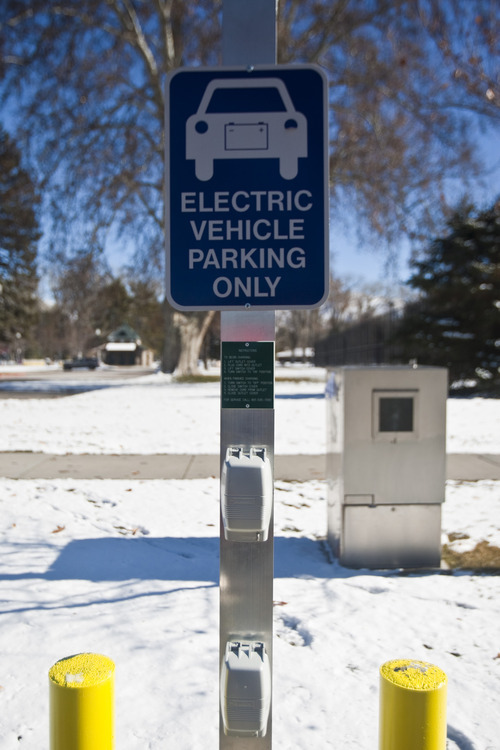This is an archived article that was published on sltrib.com in 2011, and information in the article may be outdated. It is provided only for personal research purposes and may not be reprinted.
A Utah senator is proposing charging a fee to owners of hybrid and electric cars to make their drivers — who use less gasoline and, therefore, pay less gas taxes — help fund the roads they use.
Sen. Kevin Van Tassell, R-Vernal, who is co-chairman of the Transportation Interim Committee, wants the Legislature to study the issue during the next few months. He said the question was raised in the past legislative session when Van Tassell was sponsoring a bill that would have increased the gas tax, which hasn't been raised for 14 years. His bill failed in the Senate.
"There was some discussion of what's going to happen with electric cars, hybrid cars, that are getting excellent mileage? How do they pay for their share of maintaining and building of infrastructure?" Van Tassell asked.
"There will be some that say, 'We're just improving the air, that's our contribution, leave us alone,' " he said. "I think there's a discussion we need to have."
Senate President Michael Waddoups, R-Taylorsville, agrees that it is an issue that will need to be addressed — but perhaps not yet.
"At some point, it does, but probably not now, in that we're trying to develop the manufacture and distribution" of the vehicles, he said. "We need to encourage [sales], at this point."
The issue of the gas tax and road funding is very much on the Legislature's mind, with a rare session scheduled next week in which lawmakers expect to override Gov. Gary Herbert's veto of a bill that seeks to earmark $60 million in sales tax for road construction.
Lawmakers in Washington state are considering a $100 annual fee on electric cars, and legislation in Oregon would charge drivers of electric and plug-in hybrid cars 1.43 cents per mile.
"Electric vehicles put just as much wear and tear on our roads as gas vehicles," Washington Democratic Sen. Mary Margaret Haugen told The Associated Press.
In Utah, gas-tax revenue has been nearly level since 2002, despite an increase in the number of cars on the road. Drivers paid $322 million in gas taxes in 2002. The figure crept up to $366 million in 2007, but since then has slipped to $341 million.
Davis Bell, of Provo, who bought a Toyota Prius in October, said he doesn't think Van Tassell's proposal makes sense.
"No one wants to pay more money for anything, so from a personal perspective, I wouldn't be thrilled about that," he said. "From a public-policy perspective … I'm not sure it makes sense, either, because to move from dependence on foreign oil … I can't think of a reason we'd want to remove incentives to use less oil."
Utah currently offers tax incentives for new vehicles that meet air-quality and fuel-economy standards, including efficient, gasoline-powered cars. Currently, there are no incentives for all-electric cars, but the Utah Division of Air Quality is working on a standard to extend the incentive to those vehicles.
Debbie Sigman of the clean-air group Breathe Utah said it's hard to imagine that the number of hybrids on the road is making a significant dent in the state's gas-tax revenue and that assessing a fee "seems a little premature."
"We should still probably be in the promoting-clean-technology phase of our taxation structure until we've made a marked difference in our airshed," she said.
The road funding shortage might be an opportunity, she said, to revisit the question of whether the gas tax needs to be increased.
Although groups such as the Salt Lake Chamber have been pushing for a gas-tax increase for years. Utah lawmakers have been resistant, and Gov. Gary Herbert said Thursday that he would have vetoed a gas-tax increase if it had made it to his desk.
Van Tassell said he expects to get a sense of how much support there is for his hybrid and electric-car tax proposal when lawmakers meet in their first interim meeting in mid-May and set priorities for issues to study for the rest of the year. —
Fuel-tax revenues
2010 • $341.2 million
2009 • $337.5 million
2008 • $357.7 million
2007 • $366.4 million
2006 • $344.9 million
2005 • $336.4 million
2004 • $327.8 million
2003 • $321.4 million
2002 • $321.7 million
Source • State of Utah Comprehensive AnnualFinancial Report. All years represent fiscal years.



